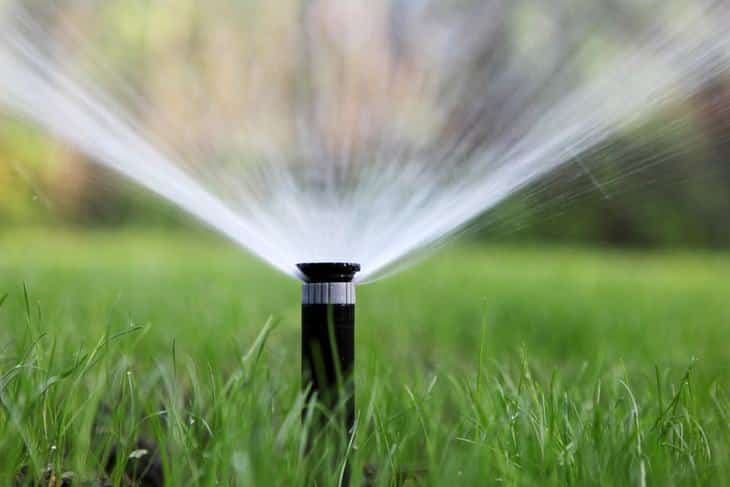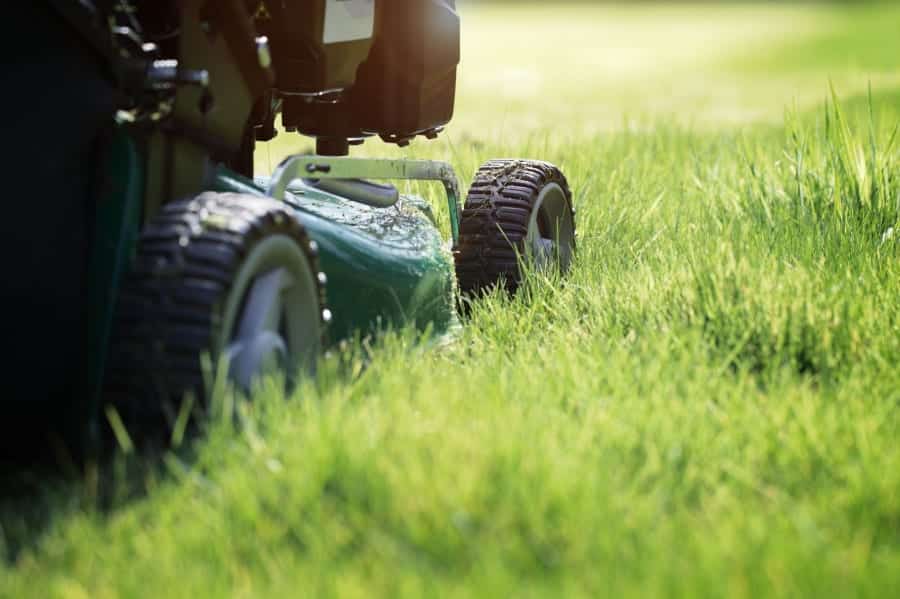The front lawns of eight average homes have a cooling effect equal to 70 tons of air conditioning. The average central air system only has 3 to 4 tons. Well-kept lawns decrease air pollution and can increase a home’s property values by up to 20%. These are all good reasons to insure your lawn is at its best, and our tips can help ensure it will be all summer long.
Test and Wake

Starting in early spring, once the last snows have melted, test your soil. You want a neutral pH for the best lawn. If it’s too high or too low, you’ll have to add amendments to the soil to get it back to where it needs to be. If your soil is just right, lay down a nitrogen-rich fertilizer and do so once in awhile all summer. Once this is complete, mow your lawn to wake it up. If it’s particularly thick or compacted, you’ll have to dethatch or aerate.
Start Fertilizing in April

April is ideal to begin fertilizing because this is when your grass comes out of dormancy but weeds have not yet begun to grow. Weed prevention is not necessary; it’s better to treat as they appear. That said, it’s not only okay to leave dandelions, violets, and clover in your lawn, it’s encouraged as these all feed our shrinking bee population. So think twice before using herbicides or pesticides.
Water Smart

Lawns benefit from regular deep soakings. If your area doesn’t get regular rain, you’ll have to supplement with your hose or sprinkler, but be sure to do so the right way. Don’t water at night, as that encourages fungal diseases. The best time to water is early morning, and if you use a sprinkler, chose a piston type, which waters more deeply.
The exception to this is if you have new seeding, in which case you’ll want the oscillating type to avoid washing the seeds away. If you have water restrictions in your area, you can collect rain water, but try not to worry if you can’t water regularly. Lawn growth slows in the heat, and if your lawn gets thirsty, it will just go dormant until it gets some water.
Mow Smart

Your lawn should be mowed regularly, at least twice a month depending on growth rate. During the summer months raise your blade a notch or two. This will keep your lawn lush and avoid scorching from the heat. It will also allow it to hold on to moisture longer.
Pest Control

Pest control is a must, but avoid broad-spectrum insecticides that will kill the good bugs along with the bad. Instead use pest control targeted to the specific pest you have, such as grubs or ants. Follow treatment with fertilizer for best results.
Vacation Care

If you have a vacation planned, don’t worry about your lawn. Mow and water it the day before you leave, and it should do just fine. If you plan to be gone more than two weeks, see if a friend or neighbor can come over and water and mow for you, or hire a lawn service to do so.
If for some reason you just have to leave your lawn on its own, chances are it will be okay, but make sure you give it mow and a deep watering as soon as you get back unless you know it has recently rained.
A lush, healthy lawn is easier to achieve than you think, just follow our tips and keep caring for your lawn into the fall and early winter months. Once Autumn rolls around, be sure to rake leaves promptly, remove debris, seed thin areas and lower your mower blade after Labor Day to ensure your lawn will sleep peacefully throughout the winter and be healthy and beautiful again in the spring.
